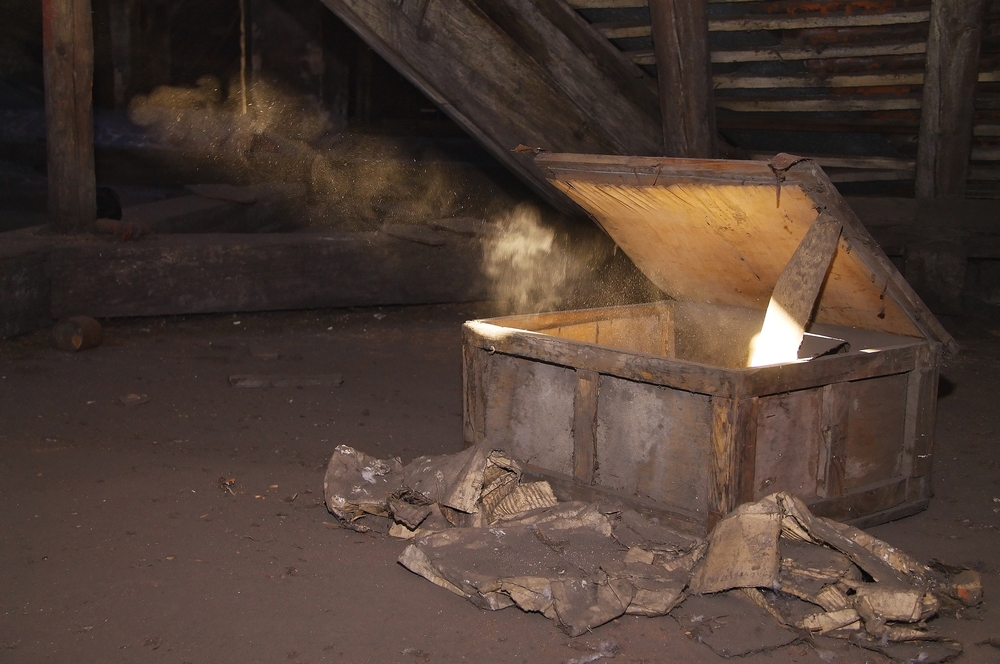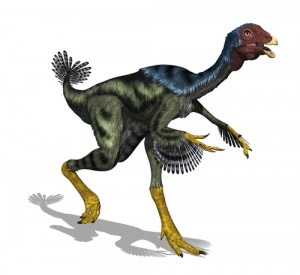
Dusting Off Metaphors
for The Last Word on NothingAs a science writer, I trade in metaphors. It’s not just how many dump trucks to fill the Grand Canyon or how close whale intestines would get to the moon if stretched out – that’s amateur hour. No, professional metaphors are the ones you barely notice, they are so woven into the text. Better yet, a real pro can make you think that you, the reader, came up with the metaphor all yourself.
The other day I went up to the attic and pulled out a box of old/unused metaphors and reminisced a bit (yes, any decent journalist has boxes of metaphors in storage). There was one that smelled a little sour comparing an olfactometer to a high school yearbook. Under that were a few polite ways to describe overweight people and one metaphor comparing hamster sex to security guards that seem to be broken.
(Sigh) good times …
But then I came across a couple climate change metaphors, buried in the back, that still seemed to work. I remembered that the IPCC is due to release its updated report soon and thought of the stirring cover story in National Geographic. So I pulled them out and dusted them off to share with you today.
As I have written before, climate change is back in the media. Climate change discussions inevitably mean climate deniers and “science writers” who had to go to Wikipedia the day before to learn about sinks and sources. It’s all part of something called a “national conversation.” Depending on where you live, you may find yourself arguing in circles with family and friends over dinner. It’s times like these I find that metaphors can cut through misinformation. So if you are so bold as to risk indigestion, here are two – free of charge.
Why climate is like a casino
Last year I had a conversation with Bob Austin, Princeton mathematician and climate skeptic, who makes the argument that modern climate models can’t possibly be accurate enough to track climate change. Bob’s a smart (and in my opinion responsible) guy, but he’s a physicist who prefers laboratory experiments to the messy world of swirling gases. Yet, it’s a similar argument you get from a line of less-credible meteorologists who are often hilariously under-qualified.
In some sense they are right – the atmosphere is almost totally unpredictable. It’s like a casino – you cannot predict who’s going to win a given day, table, or hand and you certainly can’t know what card is coming next. But here’s what you do know – the house always wins. I can’t know if a card is a six or a queen, but I know damn well that at the end of the night/week/month the casino will win more than its clients. Las Vegas was not built on donations.

Therefore, daily weather is a hand of blackjack. Climate, however, is the whole casino. And rising CO2? That’s the house advantage. Anyone who gambles even a little knows that every game favors the house just a little. The easiest example of this is roulette. Betting black gives you a nearly 50/50 chance of winning – except for the zero, which represents the house’s advantage. That one spot is the difference between profits and going broke. Gambling is a tax for people bad at math.
The same is true for climate. No one can reasonably argue that CO2 isn’t the strongest driver of climate – we’ve known this for 150 years. It’s a statistical steamroller. Sure, it’s interesting to think about the pause in average temperature warming, but don’t fool yourself into thinking that it means global warming has stopped. It’s like winning ten hands in a row and assuming that you can’t lose. Statistically, you cannot fight the house advantage and it will catch up with you (with a couple notable exceptions, but those didn’t last).
If dinosaurs turned into birds, then climate change must be real
This one is a little more egghead than the casino (and vaguely similar to theChewbacca Defense now that I think about it).
But allow me to astound you with metaphorical jujitsu (both because jujitsu is a metaphor and it’s about metaphors – whoa, right?).
In the 1800’s Darwin laid down the fundamentals of evolution and natural selection. In 1861, some unnamed German guy found the first Archeopteryx – a half bird half lizard (that would make an awesome X-men character – special power is flapping and biting at the same time). Richard Owen and Thomas Huxley then applied Darwin’s ideas to the fossil to suggest it was a missing link between birds and dinosaurs. This was the foundation. Meanwhile, at the same general time, three other Victorian scientists were discovering the foundation of climate change. Jean-Baptiste Fourier (discovered that gases trap heat), John Tyndall (laid out the list of heat-trapping gases, including CO2), and Svante Arrenhius (calculated how much the planet would warm if CO2 went up).
 In the 60s and 70s John Ostrom spearheaded a dinosaur renaissance, which brought the discussion to a head. The climate versions of Ostrom was Steve Schneider, who showed that CO2 warming was stronger than pollution cooling.
In the 60s and 70s John Ostrom spearheaded a dinosaur renaissance, which brought the discussion to a head. The climate versions of Ostrom was Steve Schneider, who showed that CO2 warming was stronger than pollution cooling.
In the 90s the final bird/dinosaur nail was the discovery of feathered dinosaurs in China (and by the scientific treatise by Spielberg, et al.). Around the same time there was a tipping point in climate circles that led to the Kyoto Protocol and the first IPCC report. (For a comic version of this progression, click here.)
The two scientific disputes track almost exactly in their progression. Today few, if any, reasonable paleontologists question that dinosaurs turned into birds (ignoring creationists – this is only a metaphor for reasoned people). Meanwhile, the climate debate rages on, with the few stragglers propped up as if there is still some debate in science. What’s the difference? Money. Politics. Power.
I love the idea of senators railing against the existence of Sinosauropteryx,yelling that there’s a conspiracy among the warm-blooded dinosaur wing of congress. But the fact is, dinosaur birds just aren’t that important to politics or private business. So the scientific discussion happened outside of politics and reason won out. Whether or not this happens in the climate debate – well, we’ll just have to see.
Photo Credits: Stutterstock.
